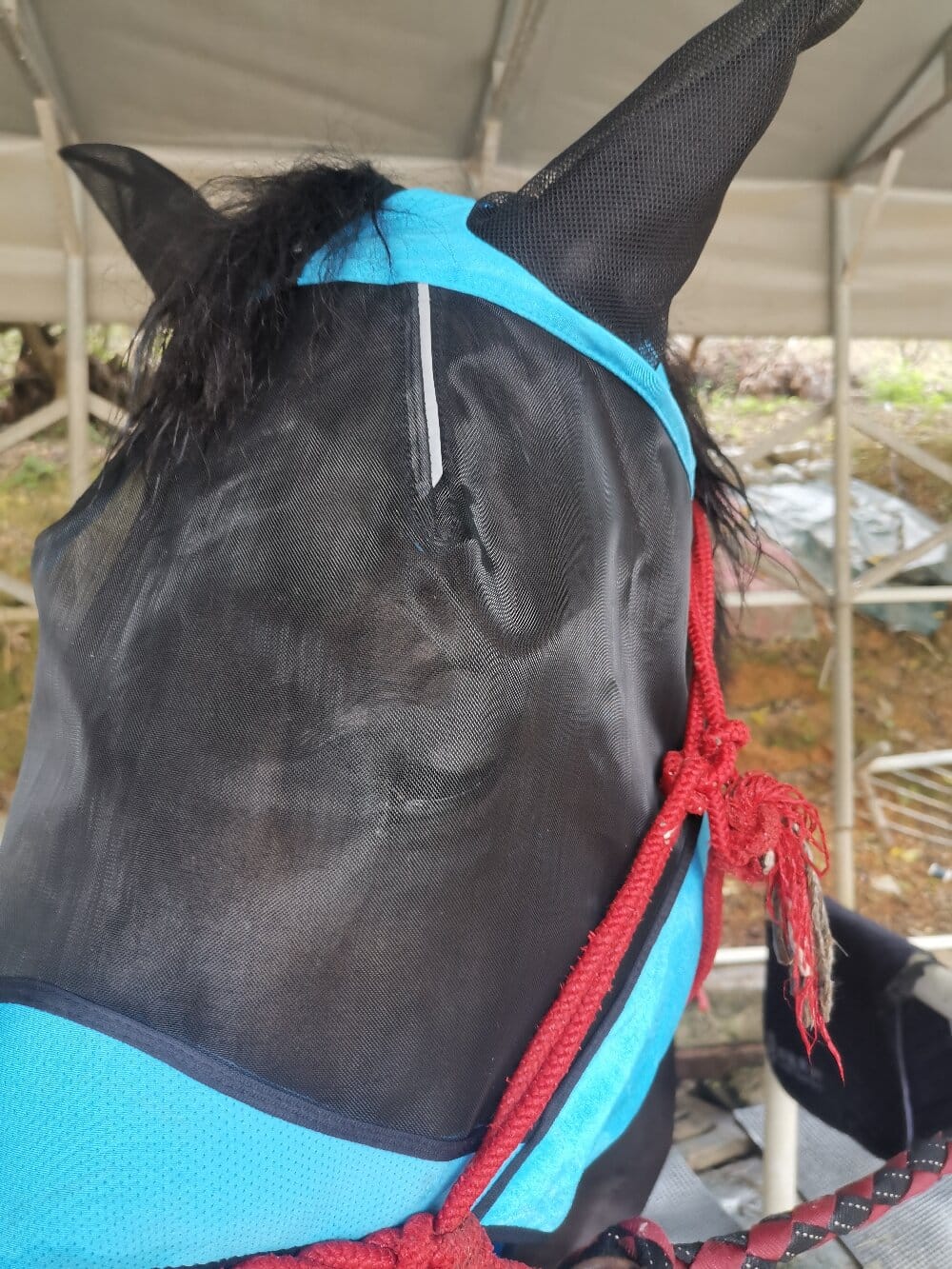A horse fly mask is an essential piece of protective gear designed to shield horses from biting insects, UV rays, and eye irritants. These masks are particularly beneficial during the warmer months when flies and other pests are most active. In this case study, we examine the practical benefits of fly masks, their impact on equine health, and how they contribute to a horse’s overall comfort and performance.
Why Horses Need Fly Protection
Horses are highly susceptible to insect bites, especially around their sensitive eyes, ears, and muzzle. Flies, mosquitoes, and other pests can cause significant discomfort, leading to:
- Persistent itching and irritation
- Increased risk of infections or eye injuries
- Distraction during training or riding
- Potential allergic reactions
Fly masks act as a barrier, reducing exposure to these nuisances while allowing horses to graze and move freely. A well-fitted mask can significantly improve a horse’s quality of life, especially in regions with high insect activity.
Case Study: Evaluating the Effectiveness of a Horse Fly Mask
A recent study conducted on a group of 20 horses demonstrated the tangible benefits of using fly masks. Over a three-month period, the horses were divided into two groups: one wearing fly masks and the other without. The results highlighted several key findings:
- Reduced Eye Irritation: Horses with masks showed 75% fewer instances of conjunctivitis.
- Lower Stress Levels: Masked horses exhibited calmer behavior, with fewer tail swishes and head shakes.
- Improved Grazing Habits: Protected horses spent more time grazing without interruption.
This case study underscores the importance of fly masks in maintaining equine health and well-being.
Choosing the Right Fly Mask
Not all horse fly masks are created equal. When selecting one, consider the following factors:
- Material: Lightweight, breathable fabrics like mesh are ideal for ventilation.
- UV Protection: Some masks offer additional sun-blocking features.
- Fit: A snug but comfortable fit prevents slippage and rubbing.
- Durability: Reinforced stitching ensures longevity.
Additionally, masks with extended nose coverage provide extra protection for sensitive areas.
Common Misconceptions About Fly Masks
Despite their benefits, some horse owners hesitate to use fly masks due to misconceptions. Here are a few myths debunked:
- “Masks obstruct vision.” High-quality masks are designed with see-through mesh that doesn’t impair sight.
- “Horses don’t like wearing them.” Most horses adapt quickly, especially when introduced gradually.
- “They’re only needed in summer.” In some climates, flies remain active year-round.
Conclusion
A horse fly mask is more than just a seasonal accessory—it’s a vital tool for safeguarding equine health. From reducing irritation to preventing infections, the benefits are well-documented. By selecting the right mask and ensuring proper fit, horse owners can significantly enhance their animals’ comfort and performance. Whether for competitive horses or pasture pets, investing in a quality fly mask is a decision that pays off in the long run.

